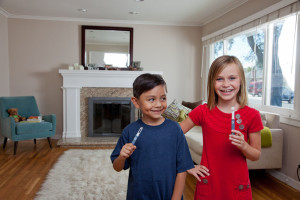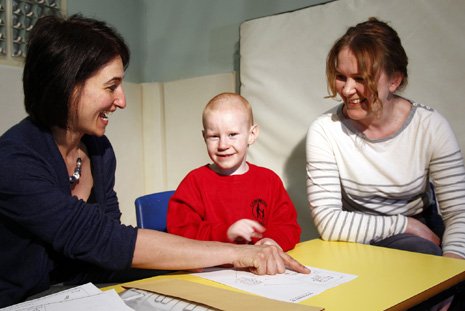Our in-depth look at tools for speech therapy continues with a look at free speech therapy tools that you can use at home. Worksheets and Printable Handouts. We have searched the Internet for worksheets that you can use with your child to use as support material in your speech therapy efforts. There are many different worksheets and handouts to choose from, so we have narrowed it down for you and organized these activities into two categories: activities to help build speech and language skills and activities to help build literacy. And, as we continue to emphasize, these are not a substitute for proper evaluation and treatment from an SLP. These handouts are purely to provide your child with hands-on resources for improving articulation, language building and increased literacy at home and to help build a foundation for correct speech patterns and comprehension.
Are Tactile Tools for Speech Therapy An Effective Option?
Apps Articulation Disorders At Home Ideas Parents' Corner School Speech Disorders Speech Therapist Speech Therapy Techniques
Our in-depth look at tools for speech therapy turns toward non-traditional speech therapy methods today. We have touched on terrific apps for families and children with articulation disorder and sites and resources for SLP’s looking to incorporate technology into their practice. Another piece of speech therapy worth discussing are hand-held, tactile tools. Hand-held items are often effective tools for speech therapy. Tactile tools target a range of skill sets from fine and gross motor, articulation, voice and stuttering, listening and sensory skills. Tactile tools allow kids to practice speech sounds, provide appropriate sensory options and can be used in any setting, whether it be home, at a speech therapist’s office or even at school.
6 Free Online Speech Therapy Resources For Kids
Games and Activities Online GamesAs parents, you know there are many ways to enrich your child’s speech and language skills, including games, books, and language modeling activities. Online speech therapy resources offer your child a way to refine and practice their speech and language skills at home. Sometimes your child needs a little extra speech therapy, whether it is to refine certain skills they are learning on at school, reinforce what they are working on with their SLP, or just an extra resource to help build speech sounds. When looking to enhance your child’s speech therapy using online resources, we have located a few favorites that won’t take a bite out of your wallet.
Easy At Home Speech Therapy Ideas
At Home Ideas Games and Activities Language Development Parents' Corner Speech Disorders Speech Therapy Techniques

Parents can conduct at-home speech therapy techniques with their children with easy, everyday activities.
For a child with any type of speech delay or language problem, professional speech therapy is an invaluable tool. Therapy does not have to be limited to visit to a speech therapists office however. There are many options for parents who are looking for a little help in dealing with their child’s speech disorder. Often, professional speech therapists are expensive, not covered by insurance and sometimes just not a feasible option for families living in rural areas. Additionally, if your child is visiting a speech therapist regularly, there are times (such as Summer vacation) where at home therapy can help keep your child progressing. What are some “at home” options for your child? Do they really work? Many of you are thinking, “I am not a certified speech therapist”, where would I even begin to start?
5 Tips for a Winning Speech Therapy Collaboration
Speech Therapy TechniquesYou know the saying it takes a village, but when it comes to special needs children, the village can make a striking difference in the effectiveness of speech therapy. Collaboration doesn’t always come easy, but once you have a handle on it, speech therapy techniques can be seamlessly integrated at home and at school so that your efforts build to a greater result. Not only should you see better results with collaborative therapy, but you will see a rapport develop between parents, teachers and the therapist that will foster communication and coordinated efforts toward the common goal of improving a child’s speech.



